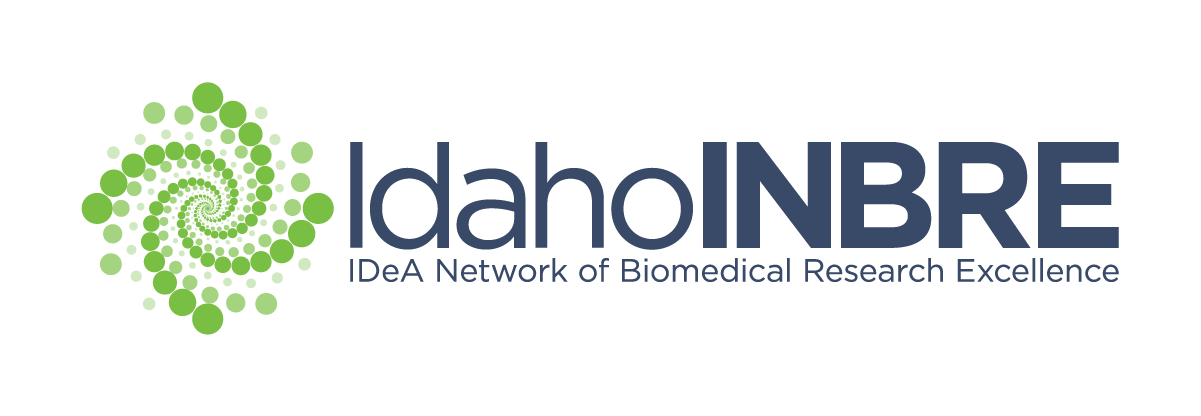Clinical Translational Visiting Scholars
Mountain West Clinical Translational Research – Infrastructure Network (CTR-IN) FELLOWS PROGRAM RFA
VISITING SCHOLARS
PURPOSE
The Mountain West CTR-IN seeks to fund Visiting Scholars to provide additional opportunities for training in clinical and translational research. Visiting Scholar awards will be targeted to New Investigators or Early-Stage Investigators, as defined by the NIH, for details see: http://grants.nih.gov/grants/new_investigators/. Support of these investigators is central to the mission of the CTR-IN, and the provision of an immersion experience with mentoring by experienced clinical and translational investigators is concordant with the goal of the CTR-IN to increase NIH-funded clinical translational research in the region. This is a competitive application to identify and select candidates.
GOALS and OBJECTIVES
The overall goal of the CTR-IN Program is to provide support to develop researchers who have a high likelihood of subsequently competing successfully for independent funding from the NIH or a comparable agency in clinical or translational research. The objective of this RFA is to support junior investigators in clinical or translational research, and to link them with mentors to assist their development in the field.
ELIGIBILITY REQUIREMENTS
The Visiting Scholar program emphasizes formal mentoring in both basic and clinical science. It will be available to New and Early-Stage Investigators as described at: http://grants.nih.gov/grants/new_investigators in any discipline who can demonstrate a path towards clinical or translational research. Eligible candidates will be faculty at any of the 13 CTR-IN partner universities with interest in health-related research, but who lack sufficient training, experience or guidance in clinical or translational research to compete successfully for NIH funding as an independent investigator. Institutional commitment to supporting the Visiting Scholar’s time during program activities will be required.
SUPPORTED ACTIVITIES
Visiting Scholars will receive mentoring and research experience coordinated by the Clinical Research Education, Mentoring, and Career Development Core Key Component Activity (CREMCaD KCA). Funds will be awarded to support reasonable travel, housing, and research supply costs. A central component of the Visiting Scholar experience will be time spent in the laboratory, clinic, or other research environment with his/her mentor(s). Time spent on “exchange” will vary, depending on the amount of release time and availability of the mentors, but a minimum of one month will be required with a maximum of 4 months.
Hosts/mentors will be encouraged to travel to the CTR-IN Visiting Scholar’s home institution to present a seminar describing their clinical or translational research in advance of the Visiting Scholar’s stay at the host location. One anticipated benefit of these visits is that the mentor will have a first-hand appreciation of the research environment available to the Visiting Scholar upon her/his return. We expect this will be helpful in establishing and directing the mentoring relationship. The CTR-IN will support the mentor’s travel for these visits.
APPLICATION AND SELECTION PROCESS
The CREMCaD KCA will coordinate the application process for the Visiting Scholar program. Applications and inquiries should be sent to the CREMCaD Director jillian.inouye@unlv.edu. All materials submitted must follow the font and margin guidance for NIH applications available at: http://grants.nih.gov/grants/funding/phs398/phs398.pdf
Research Plan: The Research Plan will consist of two pages (maximum) including:
1) background and goals towards developing a clinical or translational research career,
2) activities to achieve these goals,
3) research topic that fits the overall program goals, and
4) identification of appropriate basic science and clinical mentors.
Other Application Requirements:
1) NIH Biosketches of the applicant and mentor(s) (4-page limit),
2) letters of recommendation and support from the mentor(s) (2-page limit),
3) institutional commitment (1-page), and
4) budget and budget justification.
Institutional Letter of Support: Since longitudinal support of New and Early Career Investigators is essential to their ultimate success, applications must include a letter of support from an appropriate official at the applicant’s institution. Institutional Letters of Commitment should describe:
1) faculty release time,
2) leveraging of additional resources, and
3) cost sharing.
Process: Applications will be screened by the CREMCaD KCA Director to ensure that they conform to requirements, and the Director will contact applicants whose proposals are incomplete or inappropriate. Applications will be assigned for review to one member of the External Advisory Committee and one member of the CREMCaD KCA for scientific merit and professional development opportunity (including mentoring). The reviews will be presented to the CREMCaD KCA and its recommendations will be forwarded to the CTR-IN Executive Committee which will provide a recommendation regarding funding to the CTR-IN PI. The decision and review will be returned to the applicant within approximately 6 weeks of submission.
A schematic diagram of the process is available at: http://ctrin.unlv.edu/?page_id=306
Anticipated Number of Awards: Support is available for 3 to 5 Visiting Scholars in the current project year ending June 30, 2014 with the amount of support contingent on the quality and merit of the applications we receive.
Key Dates
Release Date: December 9, 2013
Earliest Application Receipt Date: January 2, 2014
Review: Rolling until funds used, approximately 6 weeks from application receipt to notification
Earliest Anticipated Start Date: March 3, 2014
Latest Project End Date: June 30, 2014
NOTE: ALL PROJECT ACTIVITIES UNDER THIS RFA MUST BE COMPLETED BY 06/30/14
Overview
To develop health-related clinical and translational research
• Total anticipated amount to be awarded: $40,000
• Anticipated number of awards: 3 to 5
• Eligible organizations: the 13 CTR-IN partner institutions
• Eligible applicants include Early-Stage and New Investigators at these institutions
Application Review Information
Criteria
The following will be considered in making funding decisions:
• Scientific merit of the proposed program,
• Commitment of mentor(s),
• Institutional commitment, and
• Availability of funds.
Review and Selection Process
Applications that are complete and responsive to the RFA will be evaluated for scientific merit. All applications will:
• Undergo a standardized review process including consideration of scientific merit and responsiveness to this RFA,
• Be assigned a priority score and be discussed by the CREMCaD KCA and CTR-IN Executive Committee, and
• Receive a written review (applicants will have the opportunity to discuss the review with the Director of the CREMCaD KCA).
Each of the criteria below will be addressed and considered in the review. Note that an application does not need to be strong in all categories to be judged likely to have major scientific impact. For example, an investigator may propose to carry out important work that by its nature is not innovative but is essential to developing the Visiting Scholar’s career in clinical and translational research.
Significance: Does the proposal address an important gap in the applicant’s progression towards developing a clinical and translational research career that would be filled by visiting the mentor’s institution? If the aims of the application are achieved, how will the applicant’s career be advanced? What will be the potential effect and impact of the proposed activities on the clinical and translational career of the applicant? What are the unique technologies, services, or resources provided by the mentor(s) that will significantly impact the career development of the applicant?
Approach: Is the conceptual framework for the time that the applicant will spend at the mentor’s institution adequately developed, well integrated, well reasoned, and appropriate to the aims of the proposed program? Does the applicant acknowledge potential problem areas and consider alternative tactics? Is the likelihood of successful completion high given the described environment at the mentor’s institution and the applicant’s abilities? Are the proposed timeline and interim milestones appropriate, feasible, and technically sound?
Investigators: Are the proposed Visiting Scholar and mentor(s) appropriately trained and matched to carry out this work? Is the work proposed appropriate to the experience level of the Visiting Scholar and other researchers? Does the mentee-mentor relationship bring complementary and integrated expertise to the project (if applicable)?
Milestones and Product Development Plan: Are the defined objectives/milestones and future career development plans appropriate and feasible? Feasibility should address the requirement that work be completed before 6/30/14.
Additional Review Criteria:
In addition to the above criteria, the following items will be considered in the determination of scientific merit and the priority score:
Protection of Human Subjects from Research Risk: If applicable, are the involvement of human subjects and protections from research risk relating to their participation in the proposed research assessed? IRB approval is required if so.
Biohazards: If materials or procedures are proposed that are potentially hazardous to research personnel and/or the environment, reviewers will determine if the proposed protection is adequate.
Budget: The reasonableness of the proposed budget and the requested period of support in relation to the proposed research. The priority score will not be affected by the evaluation of the budget but the programmatic objectives of the CTR-IN to support a variety of investigators across the region will be considered in the Executive Committee’s recommendations for funding.
Institutional Commitment: Evidence of longitudinal institutional commitment will be evaluated, as this will be central to the Visiting Scholar’s ultimate success in competing for independent funding in clinical or translational research.
Award Administration Information
Award Notices
The applicant will be notified of the outcome of the review by the CREMCaD Dirctor within 3 business days following completion of the review and recommendations by the Executive Committee.
Reporting
Awardees will be required to submit progress and financial reports.
Presentation
Awardees will be required to present their accomplishments at the CTR-IN Annual Meeting that will be held June 24 – 25th at the University of Nevada, Las Vegas.
Human Subjects Protection
If the Visiting Scholar is involved in Human Research, the application must:
1) Include evidence of training in procedures related to the protection of human subjects,
2) Include documentation of appropriate IRB approval of the research to be conducted with reference to the risks to the subjects, the adequacy of protection against these risks, the potential benefits of the research to the subjects and others, and the importance of the knowledge gained or to be gained. See the following site for further information. (http://www.hhs.gov/ohrp/humansubjects/guidance/45cfr46.htm).
If applicable, IRB approval must be obtained at both sites prior to the commencement of the study. The status of IRB materials will be a consideration in funding decisions.
Recent Posts



